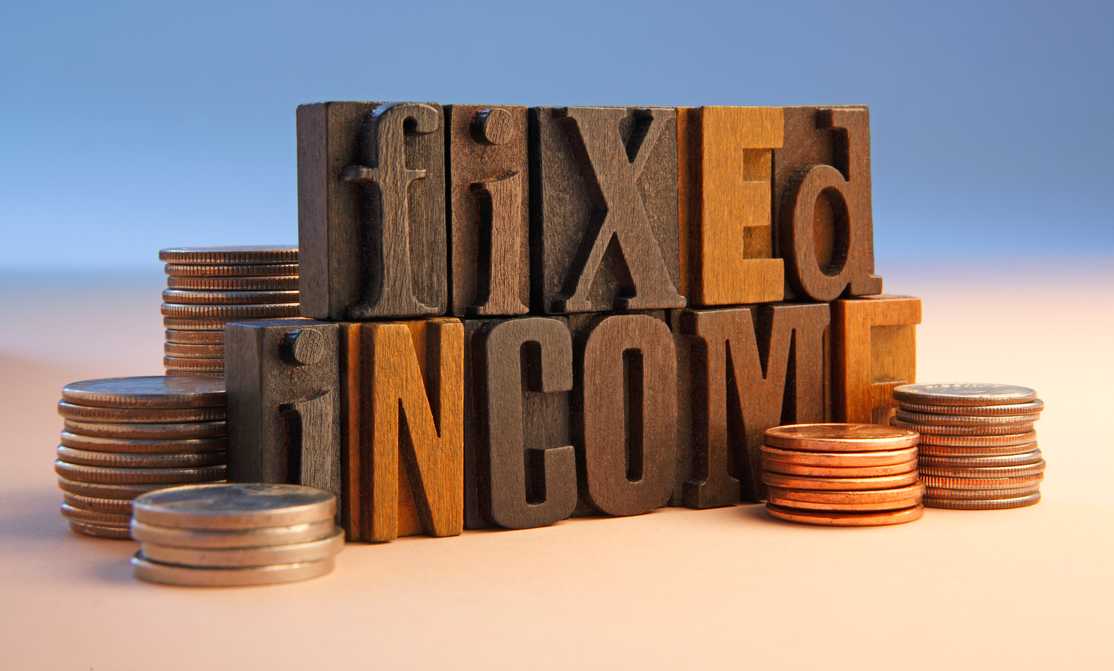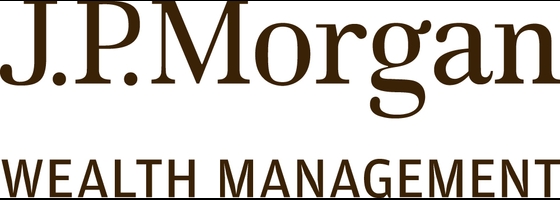- Lower risk than equity investments
- Many offer fixed-interest rates and guaranteed returns
- Some fixed-income investments offer tax advantages
- Can help diversify your portfolio
Best Fixed Income Investments in 2024

Our evaluations and opinions are not influenced by our advertising relationships, but we may earn a commission from our partners’ links. This content is created independently from TIME’s editorial staff. Learn more about it.
When it comes to fixed-income investing, you don’t have to settle for investments that generate minuscule returns. The best fixed-income investments can offer predictable, fixed returns, ensuring your money works for you within reasonable levels of risk.
Here’s what you need to know about the different types of fixed-income investments available, how they work, and how to get started.
INVESTMENT AND INSURANCE PRODUCTS ARE: NOT A DEPOSIT • NOT FDIC INSURED • NO BANK GUARANTEE • MAY LOSE VALUE
J.P. Morgan Wealth Management is a business of JPMorgan Chase & Co., which offers investment products and services through J.P. Morgan Securities LLC (“J.P. Morgan”), a registered broker dealer and investment adviser, member FINRA and SIPC. TIME Stamped is a publisher of J.P. Morgan, (“Publisher”). The Publisher will receive compensation from J.P. Morgan if you provide contact details to speak with a J.P. Morgan representative. Compensation paid to the Publisher will be up to $500 per completed contact form. Compensation provides an incentive for the Publisher to endorse J.P. Morgan and therefore information, opinions, or referrals are subject to bias. J.P. Morgan and the Publisher are not under common ownership or otherwise related entities, and each are responsible for their own obligations. Investing involves market risk, including possible loss of principal, and there is no guarantee that investment objectives will be achieved.
When starting with any type of investing, it helps to know your options. Here are the most common fixed-income investments available today:
As the name implies, a bond fund is an investment fund that invests mainly in different types of bonds, including municipal, corporate, and government bonds, as well as other fixed-income securities. Bond funds can include mutual funds and exchange-traded funds (ETFs).
Municipal bonds are debt obligations issued by public entities (counties, cities, states) to fund public projects such as schools, roads, prisons, etc. Municipal or “muni” bonds, as they are commonly called, pay investors interest, usually twice a year.
High-yield bonds are issued by corporations to raise capital. These bonds offer higher yields due to the issuing corporations' lower credit ratings. This makes them riskier than most other bonds and more prone to default. High-yield bonds are also referred to as junk bonds.
A money market fund is a type of fund that holds short-term, low-risk investments. These types of funds invest in securities such as Treasuries and high-quality bonds with shorter maturity dates. With money market funds, your money isn’t tied up for years yet still earns a decent return.
Preferred stocks are often considered a hybrid between common stock and bonds. This is because they offer a set, fixed return like a bond but hold equity. However, their “preferred” stock status means that preferred shareholders have first dibs when it comes to receiving dividends or divvying up company assets, should the company go under.
A corporate bond is a debt obligation issued by a corporation to raise capital. Like other bonds, investors can expect regular interest payments, and the principal is returned at maturity.
A certificate of deposit (CD) is a savings account where investors agree to keep their money deposited with a bank or credit union for a specified amount of time (somewhere between three months and five years) in exchange for earning an agreed-upon interest rate. There is typically a penalty for pulling money out of a CD before the maturity date.
1.25% crypto fee.
$100 treasury bills.
Treasury securities are debt obligations you buy from the U.S. government. They’re considered safe and stable investments since they’re backed by the government. Treasury bills, notes, and bonds are three types of Treasury securities.
A Treasury bill, also called a T-bill, is a short-term investment issued by the federal government. They’re issued for less than a year and typically offer lower returns than stocks, bonds, or other treasury securities. Interest earned is only paid at maturity. They’re highly liquid, which means they can be sold quickly if you need your money for other purposes.
Treasury notes pay a fixed interest rate every six months. Investors can hold the note until maturity or sell it at any time. These fixed-income investments are very liquid and offer a higher rate of return than a T-bill but a lower rate than a T-bond. They’re sold in increments of two, three, five, seven, or 10 years. You can purchase Treasury notes at auction directly from the federal government or on the secondary market.
Treasury bonds, also called T-bonds, are longer-term investments (think 20 or 30 years) with the highest yield among Treasury securities. The interest rate is fixed, and interest is paid every six months. It’s possible to earn more than the interest rate on the bond if you purchased it below the face value on the secondary market.
Treasury inflation-protected securities (TIPS) are investments that adjust the principal and interest payments for inflation. You can buy this type of investment in five, 10- or 30-year terms in $100 increments. Interest payments are made every six months. Principal and interest payments are adjusted based on the Consumer Price Index for Urban Consumers (CPI-U).
If you’re considering investing in fixed-income funds, you’re probably interested in what bond funds are performing well right now. While it is constantly changing, here is a sampling of funds from Morningstar’s list of the best bond funds in 2024:
Remember that as with equity investments, past performance is not an indicator of future returns, and fixed-income funds like the ones listed above are not guaranteed.
As you can see, there is a wide variety of fixed-income investments you can choose from. If you find the choices overwhelming, we recommend contacting a financial advisor or financial planner to help you decide.
INVESTMENT AND INSURANCE PRODUCTS ARE: NOT A DEPOSIT • NOT FDIC INSURED • NO BANK GUARANTEE • MAY LOSE VALUE
J.P. Morgan Wealth Management is a business of JPMorgan Chase & Co., which offers investment products and services through J.P. Morgan Securities LLC (“J.P. Morgan”), a registered broker dealer and investment adviser, member FINRA and SIPC. TIME Stamped is a publisher of J.P. Morgan, (“Publisher”). The Publisher will receive compensation from J.P. Morgan if you provide contact details to speak with a J.P. Morgan representative. Compensation paid to the Publisher will be up to $500 per completed contact form. Compensation provides an incentive for the Publisher to endorse J.P. Morgan and therefore information, opinions, or referrals are subject to bias. J.P. Morgan and the Publisher are not under common ownership or otherwise related entities, and each are responsible for their own obligations. Investing involves market risk, including possible loss of principal, and there is no guarantee that investment objectives will be achieved.
Fixed-income investments are typically part of a diversified portfolio. If you’re looking for alternatives, here are other investments to consider:
Equity investments, such as stock, generally have the potential to earn higher returns than fixed-income investments. But they also come with higher risk. This is why many investors diversify their portfolios with both fixed-income and equity investments.
While not considered fixed-income investments, some bank accounts pay interest. These include savings accounts, high-yield savings accounts, checking accounts, and cash management accounts.
Real estate investments are less liquid than most fixed-income investments but have the potential for a greater upside and risk. Even with adequate management, real estate is a much more active investment than fixed-income.
A fixed annuity is purchased from an insurance company and guarantees a set amount of interest paid, no matter what happens in the stock market. Your original investment, however, is not very accessible, and annuities can charge high fees.
A real estate investment trust (REIT) invests in a portfolio of real estate assets and trades like a stock. There are many different types of REITs, and unlike direct ownership of a rental or commercial real estate property, investors aren’t involved in the active management of the properties.
Dividend stocks pay a portion of the company’s profits to investors. They offer regular income to investors, but in general, are more risky than fixed-income investments.
Here’s more information about fixed-income investing and how it works.
Fixed-income investments typically pay out returns in the form of dividends or interest. They can help diversify your investment portfolio, preserve capital, and provide a steady income stream. Bonds are a good example of a fixed-income investment.
The most common fixed-income investments are straightforward in how they earn returns. A CD, for example, will offer a set interest rate for a specified amount of time. Many fixed-income investments are less risky than stocks, but they also tend to offer lower returns.
You can buy fixed-income investments through financial institutions, such as brokerage firms and banks. You can also buy them directly through issuers, such as the U.S. government.
Many online brokers enable you to purchase fixed-income investments. A few brokerage options include Fidelity, TradeStation, and Public. Not all do, however. For example, you can’t purchase fixed-income, including bonds, through Robinhood.
Many fixed-income investments can be bought directly from the issuer. For example, you can buy Treasuries from the U.S. government’s TreasuryDirect.gov website. If you want to buy a fixed-income annuity, you can buy it directly from an insurance company.
Many banks offer fixed-income investments, such as CDs and money market funds. You may need to purchase some of these investments in person, although many online banks allow you to purchase CDs on their websites.
Fixed-income investments can help preserve your capital, diversify your portfolio, and generate income. You can also benefit from the tax advantages some fixed-income investments offer, such as municipal bonds.
Some fixed-income investments are also fairly liquid. So, if you plan on using the money within a few years, a fixed-income investment can provide stable growth while keeping your money secure.
Fixed-income investments don’t have the highest potential for return, but their lower risk is an advantage. For money you’ll need within a few years, the best fixed-income investments can help you build your cash reserves while keeping it relatively safe.
No investment is entirely risk-free. Higher returns usually involve higher risk. However, CDs, money market funds, government bonds, bond mutual funds and ETFs, and deferred fixed annuities, are all fixed-income investments that are considered less risky than stocks. In early 2024, U.S. Treasuries and some CDs offered yields in the 5% range.
You can often invest in fixed-income investments through a brokerage account. Many banks also offer fixed-income investments, such as CDs. You can also invest directly in Treasuries via the U.S. government at Treasurydirect.gov.
No investment has zero risk. Banks have failed in the past, and it’s possible the government can default on debt obligations like Treasuries, though this has never happened. Most experts consider Treasuries to be the safest fixed-income investments because they are backed by the government.
High-yield bond funds have the potential for the highest returns. But they also have the highest risk of defaulting.
The information presented here is created independently from the TIME editorial staff. To learn more, see our About page.

